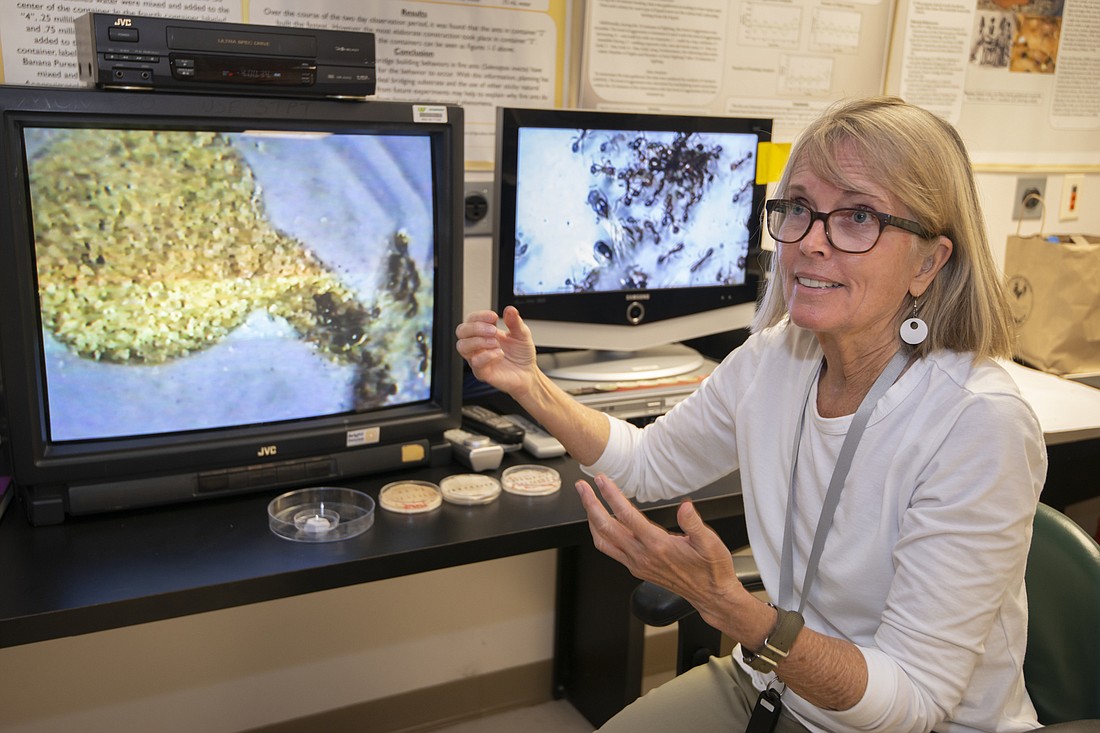- November 8, 2024
-
-
Loading

Loading

The University of South Florida’s St. Petersburg campus has received a $1 million estate gift from biology professor Deby Cassill, who worked for 20 years in health care administration before switching gears in her 40s to pursue a career in academia.
Cassill, in a news release, credits the USF St. Petersburg campus with giving her the opportunity she needed to explore her passion for science. Her career change was inspired by a David Attenborough documentary on African wildlife, and she went back to college at age 40.
By the time Cassil was 50, she had earned a PhD in biology and in 2001 was hired on as the first full-time biology professor at the USF St. Petersburg campus. Her $1 million gift, the release states, will create the Cassill Endowed Scholarship in Biology to aid the next generation of aspiring biologists.
“It is such a privilege to work here, and for more than 20 years I have been able to teach courses in a way that I believe are great learning experiences for students while following my research instincts,” Cassill states in the release. “I thought this would be a great way to give back to this institution by providing scholarships for students, including older students who are returning after a career change like me, to find their passion in biology.”
Cassill, the release states, has become an expert in ants and cooperative social systems. Her research is driven by a simple question: Why are we kind to strangers? By studying the social systems and behaviors of ants and documenting the similarities between ants and other highly social animals, such as humans, she seeks to unearth that answer while contributing to the scientific literature on altruism.
“It is truly special and says a lot about a place when a faculty member makes a gift such as this to benefit the university they have been a part of for so long,” states Christian Hardigree, regional chancellor of the USF St. Petersburg campus, in the release. “Deby’s gift will go toward doing what she has done so exceptionally well — provide incredible learning and research opportunities for students.”